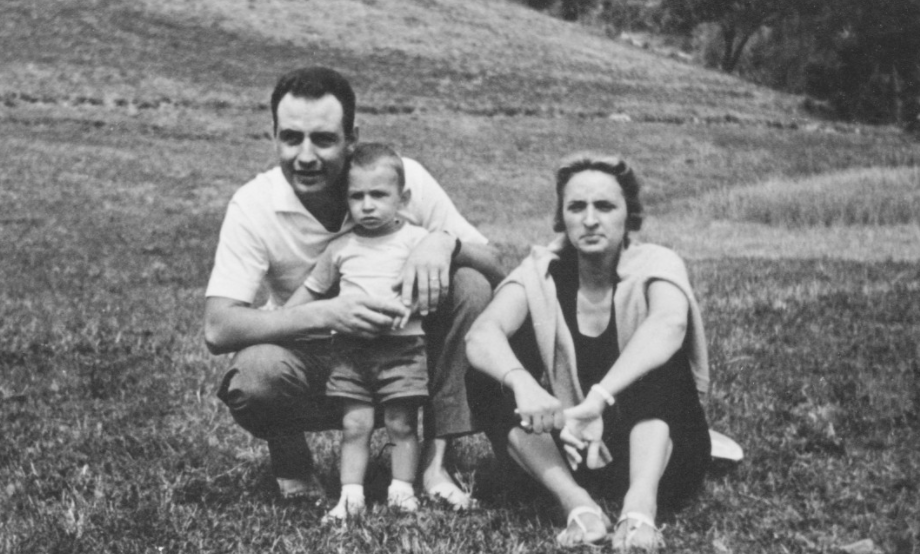To The Third And Fourth Generation
Walk with me as I explore the nature of each of the seven generations that co-exist in America today: The Greatest Generation > The Silent Generation > Baby Boomers (I & II) > Generation X > Millennials > Generation Z > Alpha Generation.
Align yourself as a member of one of these generational groups based upon the year you were born. Whatever generation you belong to, deem it as the third in the line of four generations (Deuteronomy 5:9-10). Your grandparents’ and parents’ generations would be the first and second respectively, and your children’s generation (even if you have none) would be the fourth.
Every one of us – no matter our age, family history, or life choices – is faced with the decision whether to pass down the best and worst of what we’ve received from our ancestors, or to create a new generational legacy built upon the nature, character, and reality of Jesus Christ. We have the opportunity to be the generation that pivots our family tree from self-focused to Christ-focused.
The Greatest Generation (born 1901-1927)
Their axiom: “DON’T FEEL”
The Greatest Generation, also known as the G.I. Generation and the World War II generation, is the demographic grouping that preceded the Silent Generation. This generation is generally defined as people born from 1901 to 1927, and their remaining members are the oldest generation still living today.
In his book entitled, The Greatest Generation, NBC Nightly News Anchor and Author Tom Brokaw maintains that the World War II generation’s perseverance through difficult times is a testament to their extraordinary character.
“Their remarkable actions, during times of war and peace, ultimately made the United States a better place in which to live. These men and women developed values of personal responsibility, duty, honor, and faith. These characteristics helped them to defeat Hitler, build the American economy, make advances in science and implement visionary programs like Medicare. At every stage of their lives they were part of historic challenges and achievements of a magnitude the world had never before witnessed. The Greatest Generation should be credited with much of the freedom and affluence that Americans enjoy today.”
I am proud that many of my ancestors lived, served, and sacrificed as members of the WWII generation. I can’t even imagine what our society might look like today, seventy-five years later, had it not been for this generation’s selflessness and courage. The very thought of being in their shoes – born in the midst of World War I and the greatest global pandemic ever seen, facing the Great Depression before they had even made it through high school, then as “wet behind the ears” young men, being drafted to serve their country in World War II. So, who am I to throw stones, when I enjoy the very freedoms every day that these brave individuals fought so dearly to preserve?
Objectively, though, it was this generation (as it relates to the other generations still living today) that introduced an influx of toxic shaming into American culture. In spite of their great heroism, we can’t continue to ignore the realities of living in America in the 1940s and 50s, and how that altered the trajectory of the generations to follow. As a result of their fighting for America’s freedom, the aftermath of their efforts put multitudes of Americans in emotional captivity.
The Silent Generation (born 1928-1945)
Their axiom: “DON’T TALK”
Born between 1928 and 1945, the Silent Generation – also known as Traditionalists – is the demographic grouping that followed the Greatest Generation and preceded the Baby Boomers. In the United States, this generation was comparatively small because the Great Depression of the 1930s and Word War II in the 1940s caused people to have fewer children. It includes most of those who fought during the Korean War.

During this time, the House Committee on Un-American Activities launched an assault on political freedom in America. This, in conjunction with Senator Joseph McCarthy’s attempts to feed anti-communist sentiment in America, made it dangerous for people to speak freely about their opinions and beliefs. They became cautious about where they went and whom they were seen with. Therefore, the people were effectively ‘silenced.’
In 1951, a Time magazine article was written in which the children of the generation were described as “unimaginative, withdrawn, unadventurous, and cautious.” Time magazine used the name “Silent Generation” to refer to these individuals.
———-
Soul health and spiritual maturity cannot be separated. Our counselors are ordained Christian ministers as well as certified and licensed Christian counselors. We are able to help you experience freedom from shame, anxiety, depression, or marriage / relationship conflict with methods that are purely Christ-centered. Please click on this link to learn much more about how our DEPRESSION COUNSELING can help you become a more authentic follower of Christ, and help you find freedom from identity dependence.
Life Training offers convenient sessions at our office in Louisville, Kentucky, as well as online counseling via Zoom or FaceTime. Our non-profit counseling practice has an outstanding track record for over a decade helping men and women, individuals and couples who are ready to move beyond anxiety, depression, and conflicts in marriage or other relationships find hope and healing in their lives. Contact us today at 502-717-5433, or by email at drdave@lifetrainingcounseling.org
